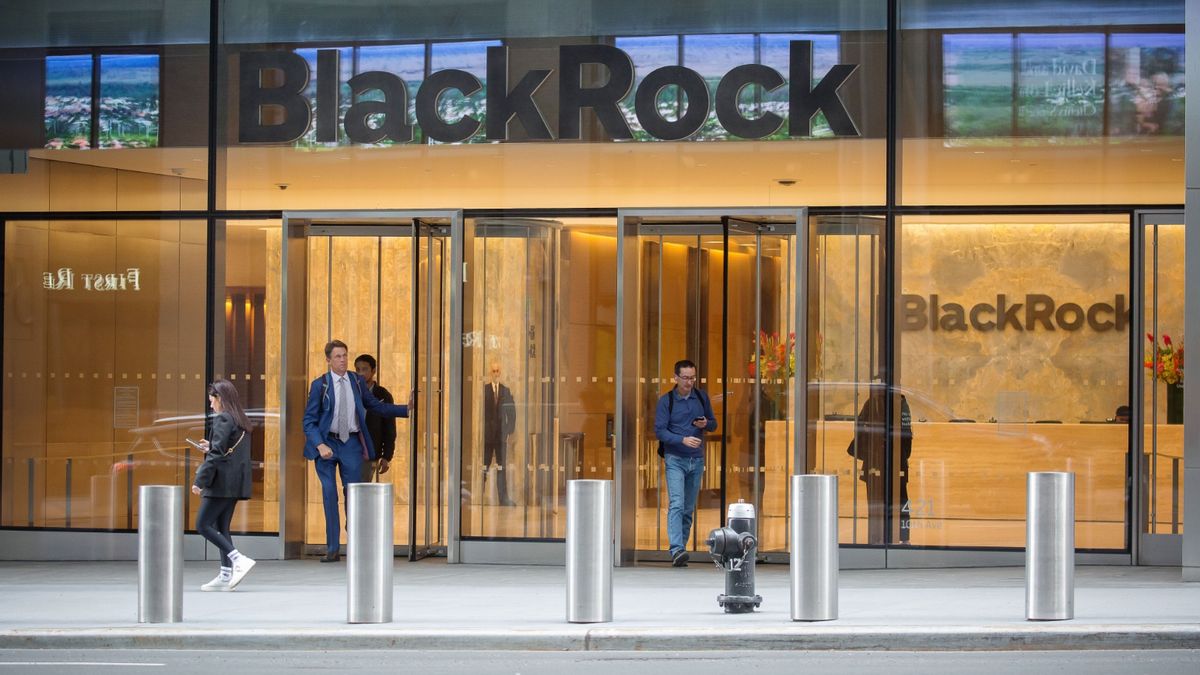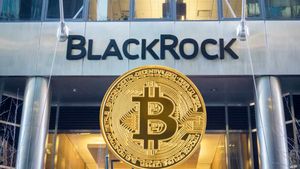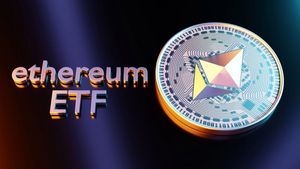JAKARTA - BlackRock, one of the largest asset management companies in the world, has sparked a large wave of US$8.9 billion (Rp137 trillion) into the world of tokenization. The tokenization, which allows traditional assets to be converted into digital tokens and traded on blockchain, is now one of the main focuses of many major world banks. This move is expected to further accelerate the adoption of this technology, bringing significant changes in the way financial assets are managed and traded.
The growing demand for clients has prompted global banks to plunge into the world of tokenization. Giant banks such as State Street, which manage assets of 4.1 trillion US Dollars (Rp63 quadrillion), recently entered into partnerships with crypto platforms and Taurus tokenizations. Not only State Street, Deutsche Bank, Santander, and Caceis one of the largest asset custodians in Europe also began to adopt tokenization as part of their strategy.
According to Lamine Bhanimi, one of the founders of Taurus, BlackRock's decision to enter the world of tokenization earlier this year prompted many other bank customers to request similar services. The banks are even willing to invest tens of millions of dollars to build the infrastructure needed to be able to compete in this new digital ecosystem.
SEE ALSO:
Tokenization offers two main advantages for financial institutions: speed and capital efficiency. Brahmi gave an example that, in traditional settings, the transfer of money market funds between banks takes two days. However, with tokenization, the process can be completed in just 25 seconds.
In addition, tokenization provides an opportunity for banks to enter new distribution methods through crypto technology. The success of stablecoins has shown that there is a huge demand for tokenized traditional assets, which can be traded more quickly and efficiently on blockchain. Quoted from DL News, Ian De Bode, head of strategy on the real-world asset platform Ondo, explains that the rapid growth of stablecoins has prompted banks to see tokenization as a way of the future.
According to data from rwa.xyz, private credit tokenization has grown by 39% this year, reaching a value of 8.9 billion US Dollars (Rp137 trillion). Overall, the value of tokenized assets, including US Treasury debt and commodities such as gold, has now reached more than 11.9 billion US Dollars (Rp183 trillion).
With regulatory clarity in Europe and other countries, many asset managers have started rolling out tokenization services more aggressively. Roger Bayston, head of digital asset Franklin Templeton, estimates that demand for tokenized money funds could reach a market value of 169 billion US Dollars (Rp 2.6 quadrillion) in the coming years, rivaling the stablecoin market.
The English, Chinese, Japanese, Arabic, and French versions are automatically generated by the AI. So there may still be inaccuracies in translating, please always see Indonesian as our main language. (system supported by DigitalSiber.id)












